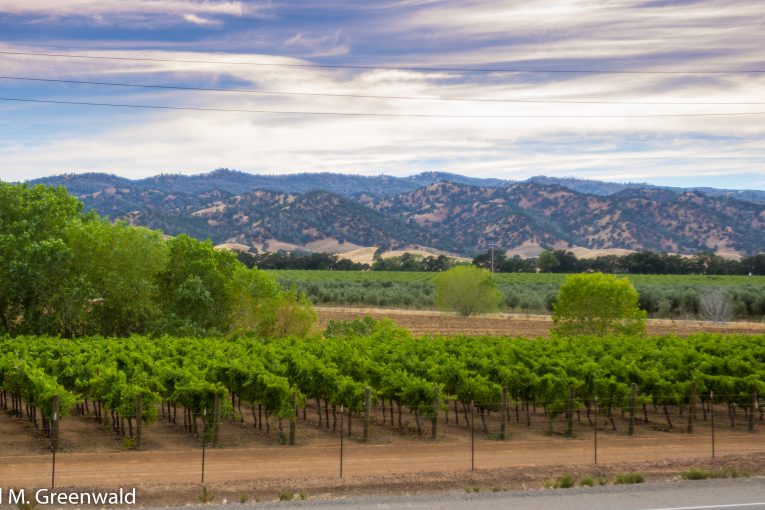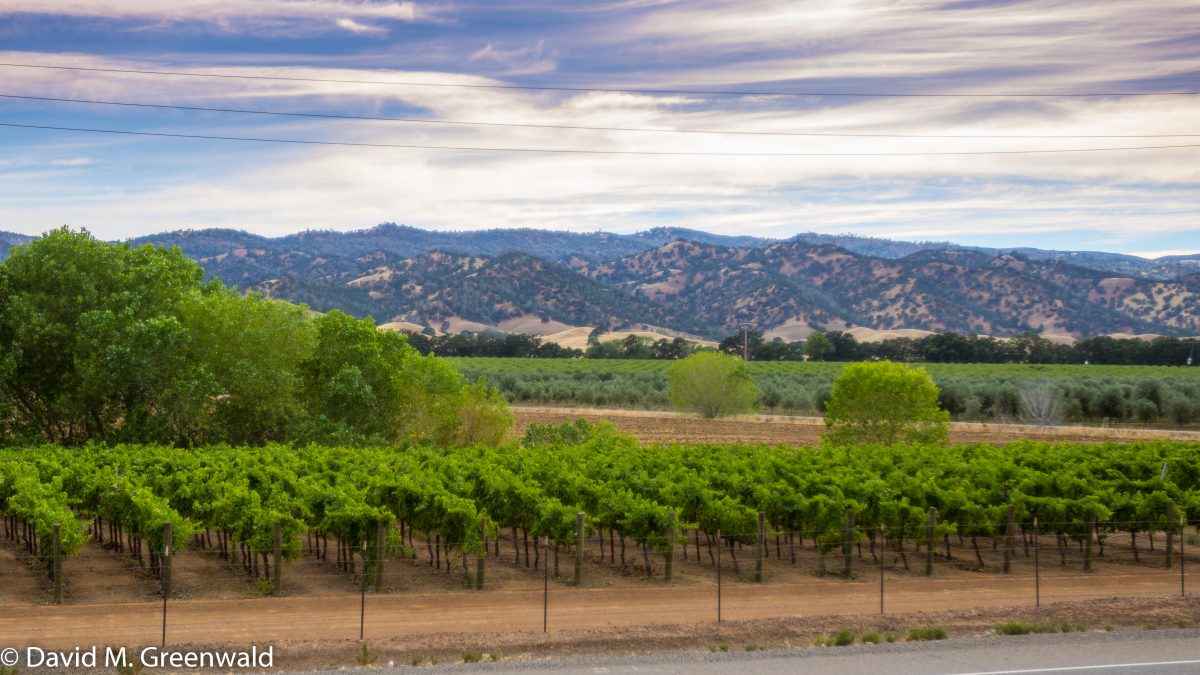

Special to the Vanguard
Brooks, CA – In an effort to hold Yolo County accountable for developing fair and sound cannabis land use policy, the Yocha Dehe Wintun Nation has partnered with the Sierra Club, Yolo County Farm Bureau, and local residents in a lawsuit to do precisely that.
The lawsuit does not seek to stop cannabis cultivation and related businesses in Yolo County, or to prevent County residents from profiting from the cannabis industry. Rather, it would simply require the County to comply with California environmental law by evaluating the full and real impacts of cannabis cultivation, and mitigate those impacts, before adopting an ordinance regulating it. Adhering to this process is what the California Environmental Quality Act requires, and indeed, these same requirements apply to every other regulated land use.
“The cannabis industry has a place in Yolo County, just as cannabis has a place in the medicine cabinets of many people in California,” noted the Tribal Council of the Yocha Dehe Wintun Nation. “But sensible cannabis permitting can’t happen until the County is clear-eyed about the problems overconcentration creates, especially in sensitive areas around schools, near cultural heritage  sites, and in smaller communities like those in the Capay Valley.”
sites, and in smaller communities like those in the Capay Valley.”
The ‘green rush’ to the Capay Valley — which comprise rural communities west of Interstate 505 from Madison through Rumsey — created widespread blight and land uses incompatible with the organic farming practices and eco-tourism for which the area is known. Additionally, the Capay Valley’s location in the northern-most part of the county makes cannabis farms there difficult to reach and more expensive to regulate for inspectors and sheriff deputies, including deputies subsidized by the Yocha Dehe Wintun Nation. With more than half of the grows concentrated in the Capay Valley, local residents have become unduly burdened.
The suit stems from flaws in the environmental review process that produced a Cannabis Land Use Ordinance the Yolo County Board of Supervisors adopted. One key flaw is the County’s refusal to compare the impacts of cannabis cultivation to Yolo County’s rural environment and agricultural landscape before the grows existed. By proceeding in this fashion, the County’s environmental document necessarily missed significant cannabis industry impacts.
While the County agreed it made sense to protect the upper Capay Valley from overconcentrated grows, its Ordinance allows cannabis grows to now concentrate in the lower Capay Valley, burdening small rural communities, schools, and businesses, particularly in Madison and Esparto. These communities are among the poorest and most diverse in the County, with Esparto and Madison having the highest percentage of Latino residents (55.3% and 76% respectively), and with Madison ranking as the most impoverished. The County’s rulemaking is unclear even on the issue of the Capay Valley’s boundaries, which is defined one way in some legal documents, and another way in the proposed Ordinance.
Not only does cannabis cultivation pose adverse impacts for residential rural communities, its production is fundamentally incompatible with traditional agriculture in Yolo County, and the County needs to account for that reality through appropriate mitigation.
The full extent of the increased costs and harms created by the industry cannot be known because the County refused to consider impacts of cannabis cultivation authorized as of 2017, without any environmental review. The lawsuit filed today seeks to correct that error.
For the full lawsuit – see here.

Farm Bureau suing farmers. Giant casino with huge traffic impacts suing pot farmers. We are through the looking glass.
Exactly.
One might just as easily say: The full extent of the increased costs and harms created by the industry cannot be known because the County refused to consider impacts of
cannabisgambling.Perfectly stated. Back in the 80’s I warned people I knew in the valley (they supported it at the time – and don’t now!) that this Casino was going to be a self-perpetuating, ever-growing, unstoppable money vacuum with ever-increasing-money-and-therefore-power. BEHOLD!
You can basically take the entire article and substitute “Casino” for “Cannabis” and you’d have the argument against the Casino, which has wrought exponentially more damage to the Capay Valley than the cannabis industry ever will.
Just out of curiosity, did the development and various expansions of the Cache Creek Casino have to comply with CEQA provisions?
Was the expansion of the casino that added 500 rooms and untold traffic to the area subject to local review by the county BOS? How about the casino itself? Did the county have any oversight role on those projects?
My understanding is that gambling is allowed on these sites based on compacts agreed between the tribe and the governor (solely) and that the county has literally no oversight or permitting authority whatsoever. I could be wrong. They operate with a voluntary Memorandum of Understanding/Intergovernmental Agreement and I don’t know what, if any role for county government is contained in that MOU/IGA. While there are many fiscal benefits for the county from the casino, that word ‘voluntary’ is key.
There was local opposition to the casino when it was developed, and to the various expansions over the years.
The extraordinary impact of Cache Creek Casino on the Capay Valley was immediately obvious to those of us who visited Capay Valley regularly in the 1970s and 80s.
I have no issue with further discussion of some of the impacts of cannabis growing operations in the area, and seeking to mitigate those near-neighbor impacts (primarily having to do with their use of pesticides and their very high security requirements). But the presence of the Yocha Dehe Wintun Nation in this lawsuit strikes me as chutzpah.
Although it sounds like the tribe might be helping the organic farmers in that area (this time), you’ve pointed out the multitude of problems with having independent/island “sovereign nations” within a nation. Which are not actually independent nations.
Gee, what could go wrong with that idea.
I’d suggest providing them with a legalized monopoly regarding gambling as a solution (and as a reparation). 🙂
They are farmers themselves, including a portion that is certified organic. https://www.yochadehe.org/farm-ranch
Yikes. How much do they have in total? And, when was the amount established? Have they added more land over the years?
Seems like they may indeed be a “sovereign nation”, one more powerful than any of their neighbors at least.
Also, are they subject to the same level of taxes and regulations as their (other) organic farming neighbors, who aren’t located within this sovereign nation?
Can they grow marijuana, as well?
Can they add say, prostitution if they wanted to? To fully compete with Nevada?
Tried to add, do they have their own police force and justice system, as well? Their own executive and legislative branches of government, etc.? Or, a different system?
In other words, how much of a sovereign nation are they? (Not just this tribe, but in general.)
What a massive screw-up all of this was, in the first place. Across the nation. And it’s continuing.
And if it’s a sovereign nation, can the U.S. cut-off roads, utilities, and other services to them?
I recall seeing a Family Guy episode, where “Peter” tried to establish a sovereign nation consisting of his home.
The Casino. The enemy of my enemy is my friend — not so much Not a good alliance, “Sierra Club”
I do know the Casino wanted a huge expansion of Highway 16 and that was shot down by a judge. A friend suggested mitigation by building a parking lot in Madison at the 505 freeway and rebuilding the Southern Pacific Rumsey Branch as far as Brooks to shuttle people on trains from the parking lot to the Casino. One problem is Esparto stupidly built a subdivision on part of the right-of-way. Nonetheless a judge ruled against the road expansion. Nonethenonetheless the road is just like it was in the 70’s and 80’s with 50 times more traffic, day and night. It’s obscene, really.
Yup. It’s obscene really.
For the Sierra Club to partner with the Casino, a cement and neon blight on that beautiful valley, is obscene, really.
I actually don’t have a problem with the tribe owning the casino and having expanded it from a metal prefab bingo parlor when I moved here in the late 80’s to the giant resort it is today. I think its fine that they have bought back land in the valley taken from previous generations. The traffic doesn’t bother me. I am also glad they that they give so much back to the community through charity.
What I don’t like is them suing others over Cannabis growing. Cannabis is now legal in this state although, because of over-taxation, its not easy to make a living farming it.
It is ultimately impossible to stop people from growing Cannabis because it is so easy to grow. It has been grown for thousands of years. Some of the earliest human writings refer to Cannabis. In Humboldt County, where I went to college, the government tried to suppress cannabis for decades through the most oppressive para-military means the Federal government has used almost anywhere since the Civil War, to absolutely no avail.
My belief is that the people of Capay need to get over it and accept that they have new neighbors engaging in what is now a new industry in their local community.
Via gambling and a giant cement blight? I am fine with “them” taking back “land”. Via gambling and destroying the Capay Valley’s beauty is an evil obscenity of a warping of this idea.
This country is filled with examples of ‘tribes’ consisting of a few powerful members selling out the rest of the tribe and giving away money to continue their grab of power. Don’t be so quick to assume this is doing such great things for native people. And as a wise man once said, “The only thing worse than not having enough money, is having enough money”.
Good God, what a statement. I was up there yesterday and the traffic up there is an absolute obscenity. It’s a constant auto line of money-losing zombies 24/7. That used to be a beautiful country road in a peaceful green valley. No more.
That’s what powerful, rich corporations do, native and non-native, to buy ‘good will’ and power in and over the community and governments they interact with.
So sweet of you to say to the people who live in the Capay Valley. I’m sure they appreciate your sentiments 😐
Two obscenities don’t make a right.
Ouch.